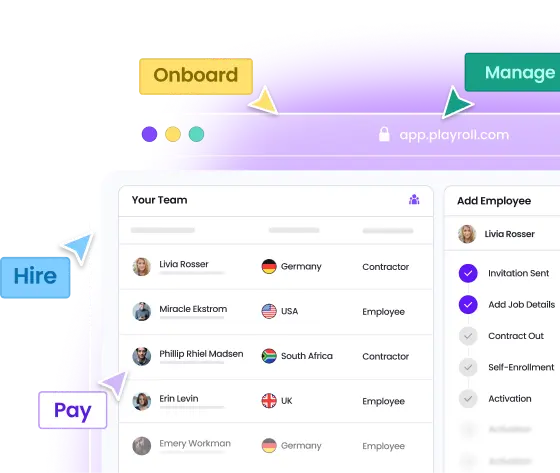What Are the Standard Working Hours In Zimbabwe?
In Zimbabwe, an employee whose age is 18 or younger has a maximum of 8 hours per day and 40 hours per week. An employee whose age is 18 or older is allowed to work up to 48 hours per week. A minimum meal interval of 30 minutes must be observed by employees who work more than 5 hours in a day. In typical working hours, Monday through Friday, the hours are 8:00 AM to 5:00 PM.
Maximum Working Hours in Zimbabwe
Zimbabwe's labor laws set clear limits on how long employees can work. The legal cap on daily working hours is generally 8 hours, with a weekly maximum of 48 hours for most workers. These limits help ensure worker wellbeing and productivity.
Overtime is permitted when there's urgent work to be completed or during seasonal peaks in certain industries. However, employers must ensure that overtime doesn't become a regular expectation and must compensate employees appropriately for these additional hours.
Industry Specific Exceptions
Several industries in Zimbabwe operate under modified working hour regulations due to their unique operational requirements:
- Healthcare workers often follow shift patterns that may exceed standard daily limits but include compensatory rest periods.
- Transportation workers, particularly long-distance drivers, have specific driving time limits with mandatory rest periods between shifts to ensure safety.
- Mining operations frequently use rotating shift patterns that accommodate the 24-hour nature of the industry while ensuring workers receive adequate rest.
Managerial and Exempt Employees
Under Zimbabwe's labor laws, managerial employees are generally defined as those who have authority to hire, discipline, or dismiss other employees, and who exercise independent judgment in their duties.
These employees are typically exempt from standard working hour regulations and overtime provisions. While they're expected to complete their responsibilities regardless of time required, employers still have a duty of care to ensure these employees don't work excessive hours that could impact their health and safety.
Statutory Full-Time Working Hours in Zimbabwe
Full-time employment in Zimbabwe is legally defined as working 40 to 48 hours per week, depending on the industry and role. This standard applies across most sectors, though collective bargaining agreements may establish different norms in specific industries.
Government employees typically work 40 hours per week, while private sector employees may work up to 48 hours before overtime provisions apply. Part-time arrangements are calculated as a proportion of these full-time hours.
Overtime Regulations in Zimbabwe
What Counts As Overtime in Zimbabwe?
In Zimbabwe, overtime is generally considered any work performed beyond the standard 8 hours per day or 48 hours per week. Work performed on weekends, public holidays, or during an employee's designated rest days also typically qualifies as overtime, regardless of whether the employee has completed their standard weekly hours.
Maximum Overtime In Zimbabwe
Zimbabwe's labor regulations limit overtime to 10 hours per week. Employers who require employees to work beyond these limits may face penalties including fines and potential legal action from labor authorities. Repeated violations can result in more severe sanctions and damage to the company's reputation.
Overtime Payout Rates In Zimbabwe
Employers in Zimbabwe must compensate overtime work at a premium rate. The standard overtime rate is 1.5 times the normal hourly wage for work beyond regular hours on weekdays. This increases to double the normal rate for work performed on Sundays and public holidays. Some collective bargaining agreements in specific industries may establish higher rates, particularly for essential services or during peak production periods.
Rest Periods and Breaks In Zimbabwe
Zimbabwe's labor laws recognize the importance of adequate rest for employee health, safety, and productivity. Employees are entitled to a minimum daily rest period of 12 consecutive hours between ending one workday and beginning the next. Weekly rest requirements include at least 24 consecutive hours of rest, typically on Sunday or another designated day.
During the workday, employees working more than 5 consecutive hours must receive a meal break of at least 30 minutes, which may be unpaid. Additional short breaks may be provided according to company policy or collective agreements.
Certain industries with continuous operations may implement alternative rest schedules, but must ensure equivalent rest time. Employers are responsible for maintaining records of working hours and rest periods to demonstrate compliance with these regulations.
Night Shifts and Weekend Regulations
Zimbabwe's labor laws define night work as work performed between 10:00 PM and 6:00 AM. Employees regularly working night shifts are entitled to additional compensation, typically a night shift allowance of 10-15% above their regular hourly rate.
Weekend work compensation varies based on regular work schedules. Employees who ordinarily work on Sundays receive 150% of their normal hourly wage, while those who do not ordinarily work on Sundays receive 200% of their normal hourly wage. Some industries with seven-day operations may designate alternative rest days for employees required to work weekends.
Employees working night shifts are entitled to free health assessments before beginning night work and at regular intervals thereafter. Pregnant employees and those with health conditions affected by night work may request transfers to day shifts where operationally possible.
Disclaimer
THIS CONTENT IS FOR INFORMATIONAL PURPOSES ONLY AND DOES NOT CONSTITUTE LEGAL OR TAX ADVICE. You should always consult with and rely on your own legal and/or tax advisor(s). Playroll does not provide legal or tax advice. The information is general and not tailored to a specific company or workforce and does not reflect Playroll’s product delivery in any given jurisdiction. Playroll makes no representations or warranties concerning the accuracy, completeness, or timeliness of this information and shall have no liability arising out of or in connection with it, including any loss caused by use of, or reliance on, the information.
.svg)
.svg)
.svg)





.svg)



.png)












.webp)









.svg)